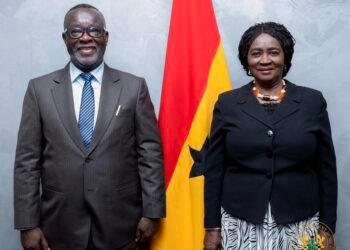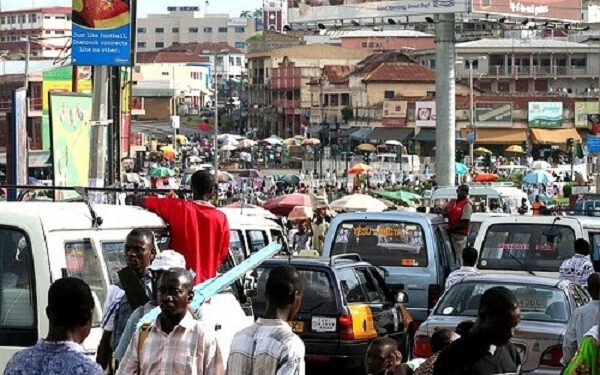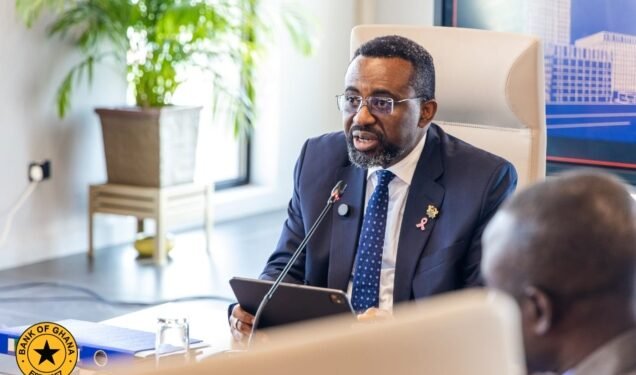Ghana and Nigeria have emerged among the first wave of countries affected by a sweeping new United States visa policy that tightens entry conditions for nationals of 36 countries. The policy, which has already begun to take effect, drastically reduces access to the once-coveted 5-year multiple-entry visa.
Most applicants from Ghana and Nigeria are now being issued only 3-month single-entry visas, marking a significant policy shift that is already stirring unease across West Africa’s middle class.
Bright Simons, Vice President of IMANI Africa, described the development as a major setback for Ghanaian and Nigerian professionals and families who have long relied on the flexibility and freedom provided by the extended US visas.
“Nigeria and Ghana are early victims of a new United States policy targeting 36 countries for potential visa restrictions. The beloved 5-year US visa for Ghanaian and American middle-class folks is going to become super-scarce”
Bright Simons, Vice President of IMANI Africa

According to Simons, the United States is framing its actions as a matter of “reciprocity,” arguing that Ghana does not grant its citizens similar long-term, multiple-entry privileges that Ghanaian citizens typically enjoy when visiting the US.
This interpretation, rooted in US foreign policy protocol, suggests that the State Department is responding to an imbalance in treatment. Yet Simons called for clarity from the Ghanaian government, urging it to publish data on visa issuances to determine whether this claim holds any statistical merit.
“Can Ghana retaliate?” With mounting public frustration, questions have turned to whether Ghana might take reciprocal action. But Simons cautioned against rushing into a tit-for-tat approach.
“The visa regimes of some other places Ghanaians like to visit, like Europe, China, and the Middle-East are not any more liberal. Getting long-term, multiple-entry, visas for these places has been quite hard.
“It may be hard to justify retaliation against the US when visa rules for other places seem just as tight or even tighter”
Bright Simons, Vice President of IMANI Africa

Simons added that retaliation does not have to mirror the form of the original restrictions. “There is no rule that says that retaliation must be symmetrical,” he said, noting that Ghana could consider other diplomatic levers if it seeks to respond in kind.
Conditions for Reversal
The US has tied any possible loosening of the restrictions to a series of reforms it expects from the affected nations.
These include increased cooperation in deporting citizens who violate US immigration laws, greater efforts to ensure the authenticity of civil documents, intelligence sharing, and tighter controls to prevent visa overstays.
These conditions, Simons argued, give the United States an undue level of control over the pace and judgment of reform implementation. “The challenge is that it has set itself up as the Judge of whether or not those reforms are succeeding or not,” he said.
The reforms, while framed as administrative, delve into complex bilateral agreements on data exchange and security cooperation, issues that are often politically and legally sensitive for Ghana and other developing states.

Although the US has previously issued similar threats, such matters were typically handled quietly through diplomatic negotiation.
With widespread frustration building, particularly among frequent travelers, students, and business professionals, expectation is mounting on the Ghanaian government to act swiftly.
“Given the scale and scope of the restrictions this time around now, citizen interest is likely to be much higher, putting pressure on the government to openly discuss the measures it intends to take in response”
Bright Simons, Vice President of IMANI Africa
Analysts have noted that Ghana’s historically strong ties with the US may be tested by this latest development, especially if the restrictions persist or intensify.
For many, the curtailment of long-term visa privileges is not just an administrative issue, but a broader statement on mutual respect and sovereign equality in diplomatic relations.























